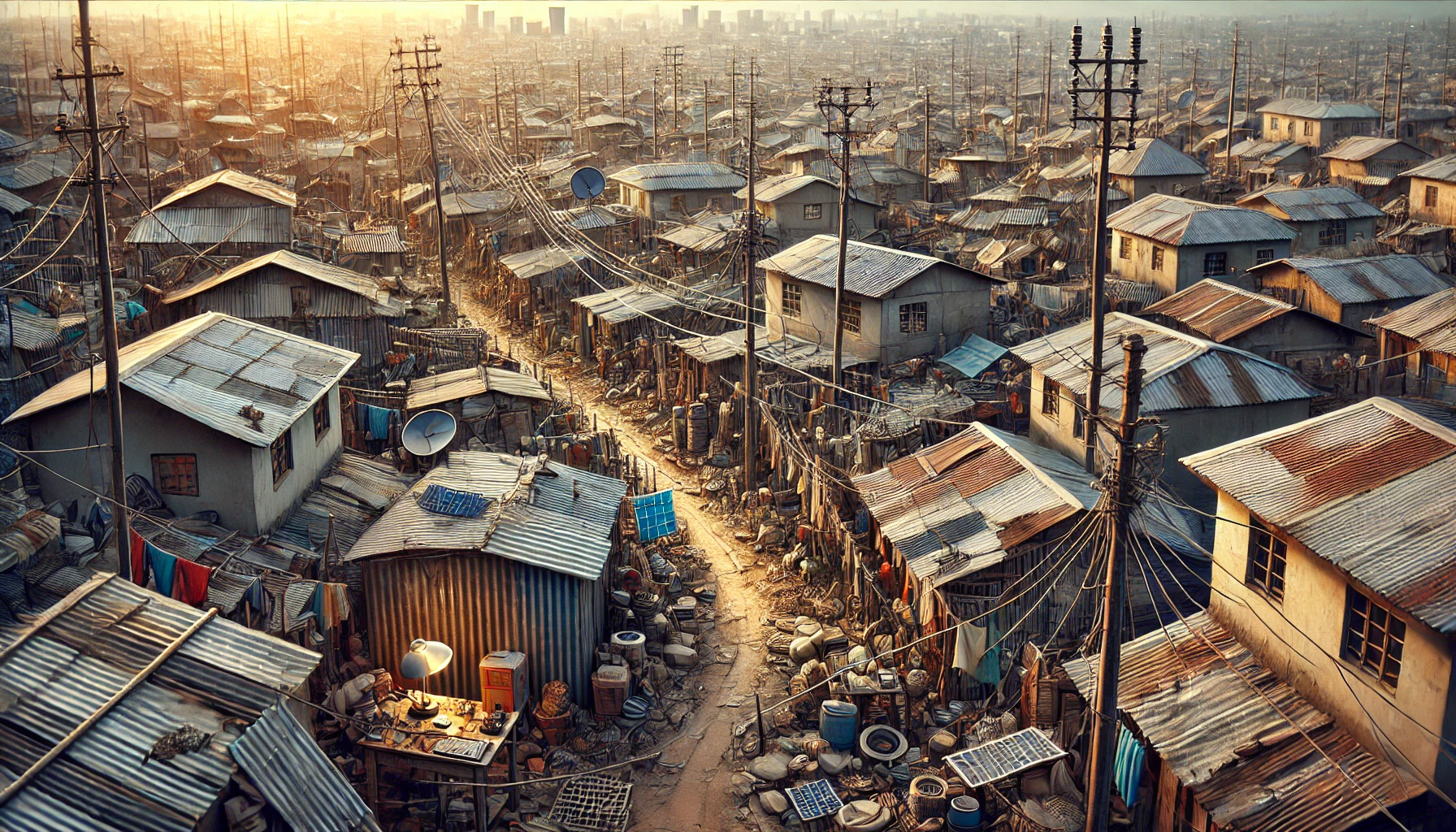Navigating Darkness: How Kampala’s Urban Poor Adapt to Unreliable and Costly Electricity
A study by University College London and the University of Exeter reveals that residents in Kampala's informal settlements use a mix of formal and informal methods, including illegal connections and energy stacking, to cope with unreliable and expensive electricity access. These coping strategies highlight significant energy poverty and call for more equitable, hybrid energy solutions in Uganda's urban areas.

In Kampala's informal settlements, particularly in the Nakulabye area, households face significant challenges in accessing reliable and affordable electricity. Researchers from University College London and the University of Exeter conducted a study over two months in 2022 to examine the complex strategies residents employ to meet their energy needs in a highly constrained environment. Uganda, one of the countries with the highest energy access deficits globally, sees its low-income residents improvising through a mix of formal and informal methods to secure electricity.
Navigating Unreliable Grid Connections
Electricity access in Nakulabye is marked by a multiplicity of infrastructures, where residents navigate a landscape of unreliable grid connections, high costs, and informal access methods. The grid, while widely recognized as the ideal source of electricity, is often out of reach or insufficiently reliable for many residents. As a result, households in this area resort to energy stacking using a combination of grid electricity, solar lamps, paraffin, candles, and even illegal connections to meet their daily needs. This approach allows them to balance the high costs and unpredictability of grid electricity with the need to maintain essential household activities.
Challenges of Maintaining Grid Access
Despite nearly universal grid connection in Nakulabye, the reality for most residents is far from straightforward. The grid's unreliability and the high cost of electricity lead many to limit their usage to low-consumption activities like lighting and phone charging while avoiding high-consumption tasks such as cooking or ironing. In some cases, households that were once connected to the grid have had their connections removed due to the prohibitive costs or because landlords and informal electricity providers found it more profitable to disconnect them. Others never gained access to the grid in the first place, either due to the high initial connection costs, inadequate housing infrastructure, or simply being located too far from the nearest power line.
Risks of Informal Electricity Networks
The reliance on informal electricity access, often facilitated by unlicensed electricians known as kamyufu, introduces a host of risks, including safety hazards like fires and electrocutions. These informal networks are also prone to frequent power cuts and surges, further complicating the residents' ability to rely on electricity for their daily activities. Despite these risks, the affordability and flexibility of informal connections make them an attractive option for many households who cannot afford the formal grid connection or the ongoing costs associated with it.
Coping Strategies for Managing Electricity Consumption
The study also reveals that coping strategies in Nakulabye are not just about securing electricity but also about managing its consumption in a way that stretches limited resources as far as possible. Households engage in practices like rationing electricity across different times of the day, using electricity only in specific parts of their homes, and minimizing the use of high-consumption appliances. For instance, ironing is done only on certain days, and fridges are often turned off at night to save on electricity. These strategies reflect the broader economic realities of life in Nakulabye, where residents must constantly juggle limited financial resources with the need to maintain a basic standard of living.
Shaping Future Energy Policies for Slum Communities
The pervasive use of coping strategies in Nakulabye has broader implications for energy policy and service provision in Uganda. While these strategies allow households to navigate the immediate challenges of energy access, they also risk entrenching a status quo where informal and unsafe electricity practices become the norm. This can lead to a situation where the true extent of energy poverty in these communities is obscured, potentially leading to complacency among service providers and policymakers. The study suggests that a more nuanced understanding of these coping strategies could inform more effective and equitable energy policies that are better attuned to the needs of urban poor communities.
Ultimately, the research highlights the need for a shift in how energy access is approached in Uganda's urban informal settlements. Rather than viewing grid extension and rural electrification as the sole solutions, there is a need to recognize the role of hybrid energy solutions that combine grid and off-grid sources to meet the diverse needs of different populations. By addressing the specific challenges faced by slum dwellers and integrating their coping strategies into broader energy planning, policymakers can develop more responsive and sustainable solutions that help lift these communities out of energy poverty.
The situation in Nakulabye underscores the critical importance of electricity to the residents of Kampala's informal settlements. Nearly all households go to great lengths to secure electricity, despite the risks associated with some access options. As Uganda transitions from a private to a public electricity distribution model, there is an opportunity to rethink how electricity is provided to all urban neighborhoods, including the slums that house a significant portion of the city's population. This research offers valuable insights into how poor people's energy practices can inform more inclusive and effective energy policies, contributing to a more equitable urbanization process in Uganda.
- FIRST PUBLISHED IN:
- Devdiscourse










